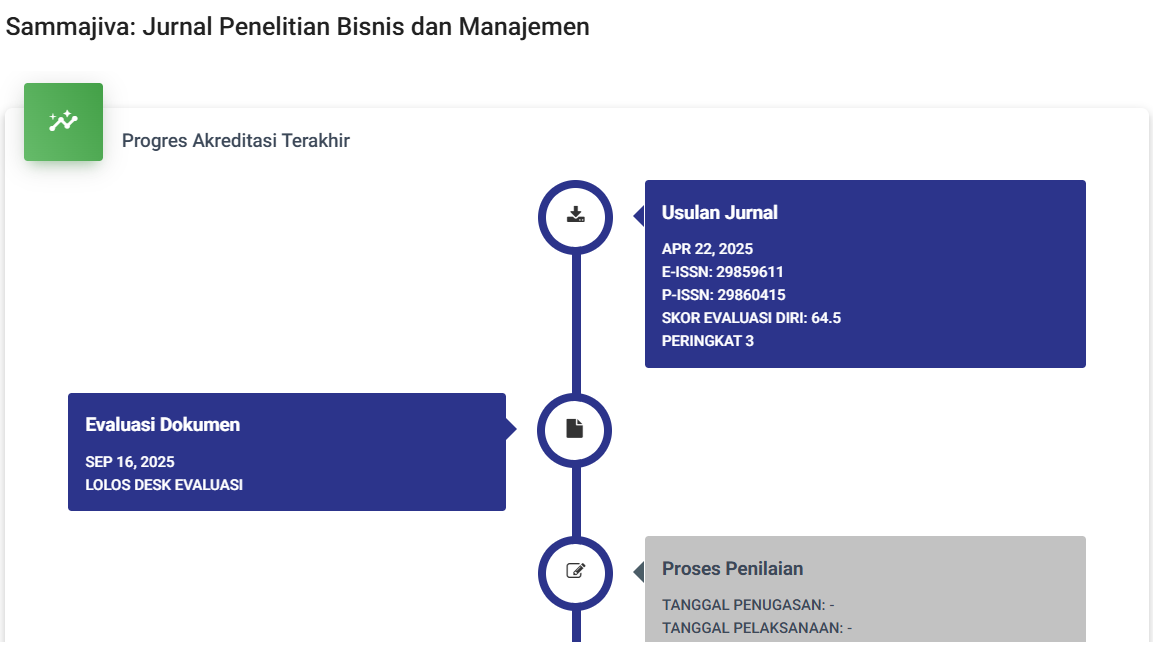The Impact of AI-Driven Approaches on Product Branding in Ethical Business Practices
DOI:
https://doi.org/10.47861/sammajiva.v1i2.949Keywords:
AI-driven branding, Ethical business practices, Consumer perceptions, Qualitative research, Impact analysisAbstract
This research investigates the effects of AI-driven approaches on product branding within the context of ethical business practices. The study aims to understand how AI technologies shape consumers' perceptions of brands and ethical considerations. Adopting a qualitative research model, data will be gathered through in-depth interviews and focus group discussions with consumers, marketing professionals, and AI experts. Sampling techniques will involve purposive and snowball sampling to ensure diverse perspectives. Data analysis will employ thematic analysis, identifying recurring patterns and themes related to AI's impact on branding and ethics. The study anticipates revealing insights into how AI influences brand strategies, consumer trust, and ethical implications, providing valuable guidance for businesses navigating AI integration while upholding ethical standards.
References
Benardi Benardi, Mohammad Chaidir, Yessica Amelia, & Farah Qalbia. (2022). Sustainable Digital Marketing Strategies for Enhancing Micro, Small and Medium Enterprises Product Branding. Proceeding of The International Conference on Economics and Business, 1(1), 244–252. https://doi.org/10.55606/iceb.v1i1.373
Braun, V., & Clarke, V. (2019). Reflecting on reflexive thematic analysis. Qualitative Research in Sport, Exercise and Health, 11(4), 589-597.
Choi, D., & Kim, J. (2020). Ethical issues in artificial intelligence and big data. Journal of Database Management, 31(1), 1-17.
Creswell, J. W., & Poth, C. N. (2018). Qualitative inquiry and research design: Choosing among five approaches. Sage publications.
Mohamad Chaidir, Ruslaini Ruslaini, & Seger Santoso. (2022). The Ethical Implications of AI-Driven Digital Marketing Development : A Qualitative Study in the Indonesian Business Landscape. Proceeding of The International Conference on Economics and Business, 1(1), 283–292. https://doi.org/10.55606/iceb.v1i1.377
Guest, G., Namey, E., & McKenna, K. (2020). How many focus groups are enough? Building an evidence base for nonprobability sample sizes. Field Methods, 32(1), 3-22.
Jain, A. (2020). AI and marketing: How technology is transforming the consumer landscape. Journal of Business Research, 122, 651-659.
Jobin, A., Ienca, M., & Vayena, E. (2019). The global landscape of AI ethics guidelines. Nature Machine Intelligence, 1(9), 389-399.
Ekawahyu Kasih, Cahyatih Kumandang, & Grace Yulianti. (2022). Exploration of Sustainable Digital Marketing Approaches for Amplifying Micro, Small and Medium Enterprises Product Branding. Proceeding of The International Conference on Economics and Business, 1(1), 263–271. https://doi.org/10.55606/iceb.v1i1.375
Lam, S. Y., Shankar, V., Erramilli, M. K., & Murthy, B. (2021). The impact of trust on customer-brand relationships: A multi-industry perspective. Journal of Retailing, 97(1), 48-64.
Li, X. (2020). Personalized marketing based on big data analysis. In Proceedings of the International Conference on Artificial Intelligence, Big Data, and Computer Vision (pp. 125-129). Springer, Singapore.
Mia Christy Patricia, Muhammad Rizal, Muhamad Chaidir, & Ruslaini Ruslaini. (2022). Exploring the Role of Artificial Intelligence in Fostering Ethical Business Practices: Insights from Digital Marketing Advancements in Indonesia. Proceeding of The International Conference on Economics and Business, 1(1), 272–280. https://doi.org/10.55606/iceb.v1i1.376
Milano, R., Teixeira, M., & Ma, Z. (2021). Marketing automation and consumer privacy concerns: An exploratory investigation. Journal of Retailing and Consumer Services, 58, 102368.
Mittal, P., & Sharma, A. (2021). Ethical issues and challenges in artificial intelligence: A systematic review. Journal of Database Management, 32(1), 68-86.
Mittelstadt, B. D., Allo, P., Taddeo, M., Wachter, S., & Floridi, L. (2016). The ethics of algorithms: Mapping the debate. Big Data & Society, 3(2), 2053951716679679
Nguyen, D. T., Chieu, V. M., & Le, H. A. (2019). Enhancing brand interaction through AI chatbots: A qualitative study. Journal of Retailing and Consumer Services, 51, 319-328.
Nguyen, T. H., & Simkin, L. (2020). How do marketing managers use big data analytics in practice? In Proceedings of the 53rd Hawaii International Conference on System Sciences.
Rauschnabel, P. A., & Ahuvia, A. C. (2014). Fear of missing out: Antecedents and consequences of experiential marketing in a multichannel environment. Journal of Interactive Marketing, 28(2), 134-149.
Schmalz, M., & Uslay, C. (2019). Building trust through user-generated content on social networking sites: The moderating role of knowledge about the host brand. Journal of Marketing Management, 35(15-16), 1455-1483.
Smith, N. C., & Smith, J. B. (2021). Marketing ethics: A review and research agenda. Journal of Business Research, 125, 205-218.
Van der Aalst, W. M., Bichler, M., & Heinzl, A. (2022). AI ethics: Ethical considerations of artificial intelligence. Business & Information Systems Engineering, 64(1), 1-10.
Wajong, B. E. R., Irawan, D., Wylen, & Bernarto, I. (2020). Persepsi Karyawan pada CSR, Keterlibatan Karyawan, dan Kepemimpinan Etis pengaruhnya terhadap Kreatifitas Karyawan. Jurnal Administrasi Bisnis (Jab), 10(2), 72–79. https://doi.org/https://doi.org/10.35797/jab.v10.i2.72-79
Grace Yulianti, Eri Kusnanto, Mia Christy Patricia, & Seger Santoso. (2022). Sustainability and Digital Marketing in Uplifting Micro, Small and Medium Enterprises Product Branding: An Investigative Study . Proceeding of The International Conference on Economics and Business, 1(1), 253–262. https://doi.org/10.55606/iceb.v1i1.374
Grace Yulianti, Mia Christy Patricia, & Eri Kusnanto. (2022). Sustainable Digital Marketing Models for Uplifting Micro, Small and Medium Enterprises Product Branding. Proceeding of The International Conference on Economics and Business, 1(2), 932–941. https://doi.org/10.55606/iceb.v1i2.378








